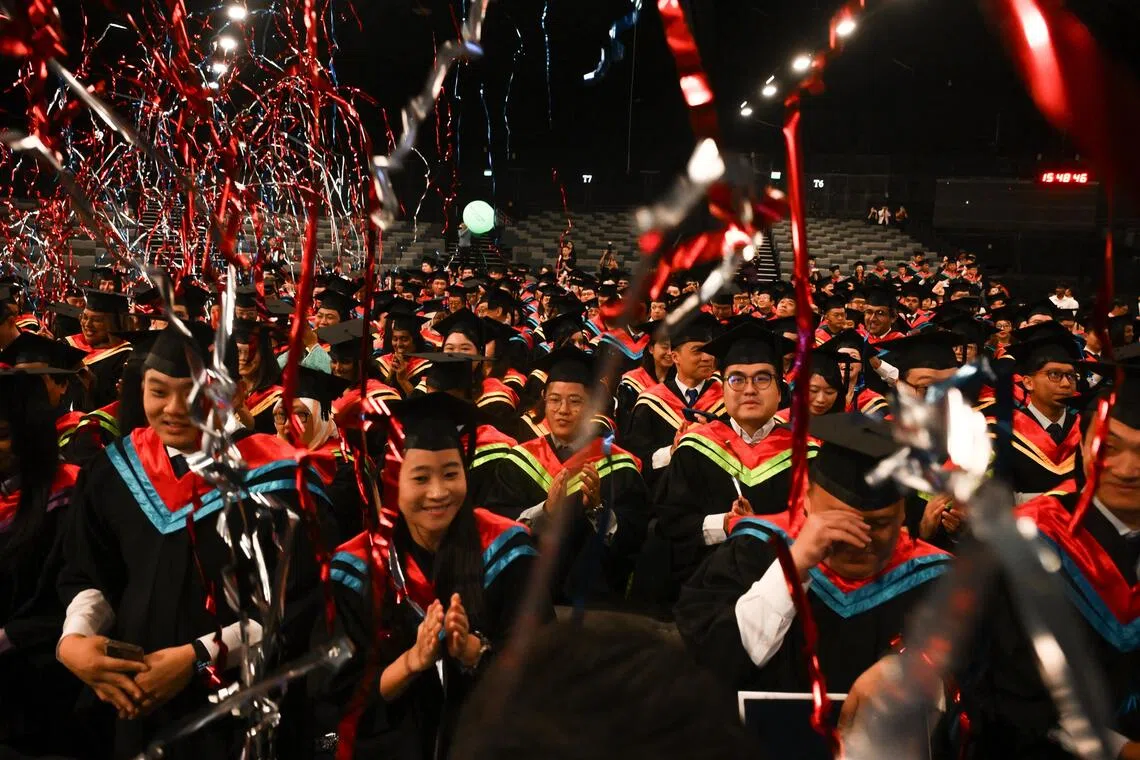SINGAPORE – A recent study has found that 68 per cent of youth in Singapore are open, actively or passively, to new job opportunities.
Financial gain and job stability ranked as their top two priorities, while flexible work arrangements and work-life balance were also important, according to the study by the Singapore University of Social Sciences (SUSS).
Results from the study on youth employment were released on Oct 10 during a media briefing held at A Good Place, a community hub at One Holland Village.
The study’s principal investigator is Associate Professor Justina Tan, vice-president of strategic partnership and engagement at SUSS.
The findings were drawn from a survey conducted from June to July of over 1,000 young people – both Singaporeans and permanent residents – and more than 250 employers across sectors. Researchers also held 12 focus group discussions with about 90 participants.
The study, which was supported by funding from the Tote Board, also analysed findings by youth education levels and three age groups: 18 to 25, 26 to 30, and 31 to 35.
Among those in the 18 to 25 age group, 35 per cent are actively seeking new roles, compared with 20 per cent of those aged 26 to 30 and 19 per cent of those in the 31 to 35 age group.
And 30 per cent of those in the oldest age band are not considering a job change, versus 23 per cent to 27 per cent for the younger groups.
The study’s results were released alongside a youth forum held by SUSS on Oct 10. It was attended by about 180 participants.
In a speech at the event, SUSS president Tan Tai Yong spoke about the importance of soft skills, against the backdrop of increased economic disruptions and greater competition for full-time roles.
Preparing young people to thrive in workplaces is not just about giving them technical know-how, he said. “It is about building resilience and the human skills needed to thrive in an ever-changing work space.”
Addressing youth at the event, Senior Parliamentary Secretary for Manpower Shawn Huang said that being adaptable is important.
“Success in the workplace goes beyond technical skills. Soft skills such as teamwork, problem-solving, communication are also important.”
He added: “In an age where AI is replacing basic knowledge work, these skills are indispensable.”
The study found that while both employers and youth recognise the growing importance of soft skills in today’s workplace, employers place more emphasis on them.
Ms Suyin Tay, assistant director of Bettr Academy, said she looks out for personality traits and soft skills over technical competencies during interviews with potential new hires. Bettr Academy is the training arm of Bettr, a local coffee company.
Are they curious? Did they do their research? Do they thank her staff? These are some qualities and traits that she values and looks out for.
“Technical skills are helpful to get you through the door. What keeps you at the door or entering that door are really the softer bits,” Ms Tay said.
The study showed a difference in the soft skills valued by employers and employees.
Employers ranked problem-solving as the most important skill, while youth consistently placed communication and critical thinking at the top.
“Employers will expect employees to go beyond what GenAI can do. If everyone uses it the same way, outcomes or solutions will look the same,” said Prof Justina Tan.
“What differentiates organisations are people who think differently, who bring fresh perspectives and creative ways to solve problems,” she said.
SUSS said its study serves as the first step in its efforts to address youth employability and skills development.
The university will work with employers and four self-help groups, the Chinese Development Assistance Council, Eurasian Association, Singapore Indian Development Association, and Mendaki, to come up with ways to equip youth with soft skills like problem-solving.
Ms Audrey Chong, 24, a fourth-year undergraduate at SUSS, said communication and problem-solving are both important and go hand in hand.
“When there is no communication, there is no bridge to solve the problem,” she said.
Ms Chong said it would also be helpful for employees to have a mentor tagged to them “as a way to guide this new person into the workforce smoothly”.
Working lifeSUSS/Singapore University of Social SciencesCareersFlexible work arrangements

